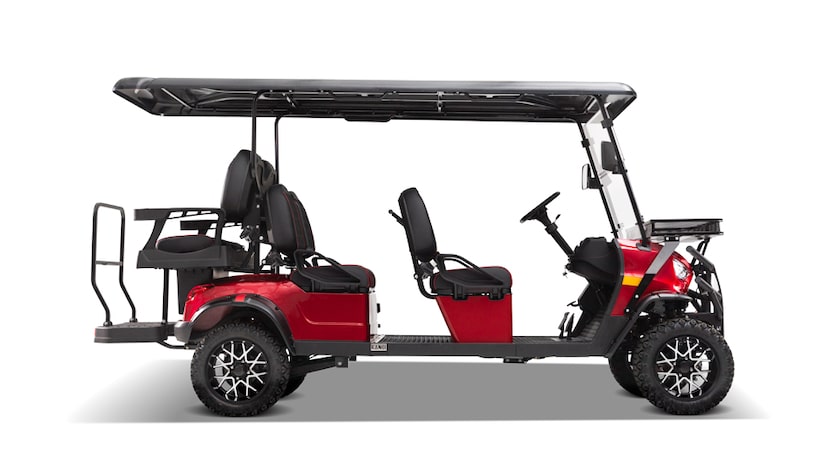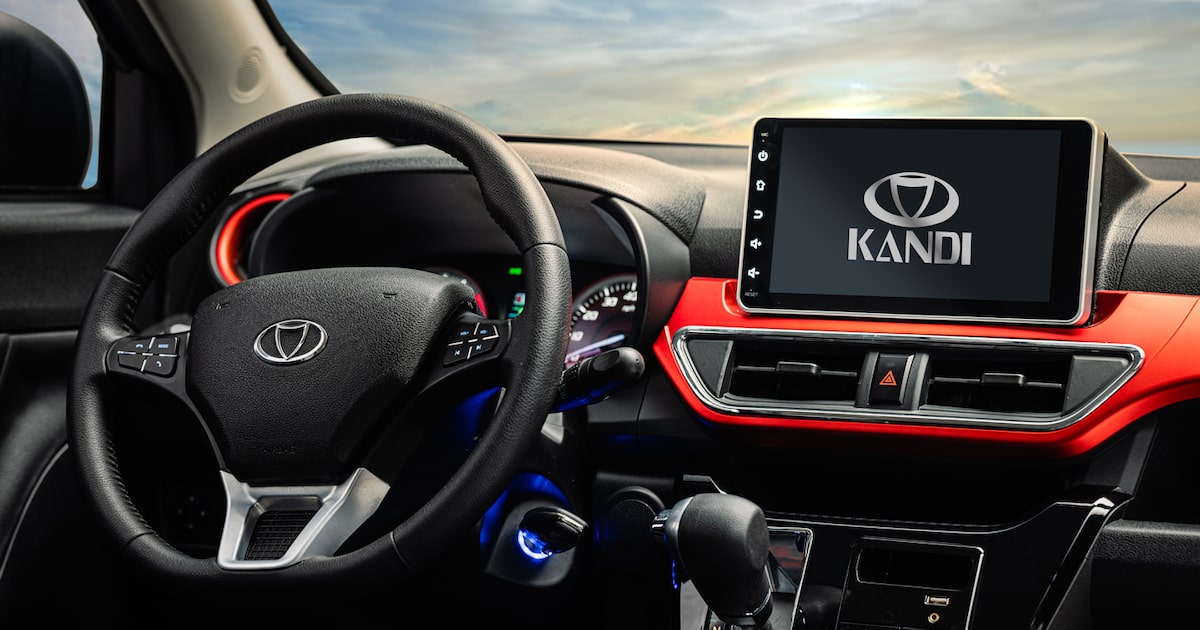Located in a shopping center just east of North Central Expressway in the former home of an Academy Sports + Outdoors, sits the American headquarters of Kandi.
Visitors who try to enter the building for the Chinese electric car maker to see what Kandi vehicles are all about will find it’s not open to the public.
But Curious Texas has the key to what Kandi vehicles are all about.
An anonymous reader asked Curious Texas who buys Kandi vehicles and if they are roadworthy. The reader has seen them at the shopping center that includes a Home Depot at Forest Lane and North Central Expressway.
Curious Texas
Kandi Technologies Group, Inc. is a Chinese manufacturer of batteries and electric vehicles, according to its website. Kandi America, a Dallas-based subsidiary of Kandi Technologies, manages its U.S. operations.
Related

Kandi moved its U.S. headquarters from Garland to Dallas and the high-profile corner in the Lake Highlands neighborhood in 2021. The 54,372-sq.-ft. building houses Kandi America’s corporate offices, a showroom and a distribution center for its electric vehicles which you won’t see traveling down North Texas roadways, though that had been the idea a few years back.
Plans to sell street-legal Kandi cars seemed to be in the works in the early 2020s. Kandi issued news releases in 2019 that said “Model EX3 and Model K22 have been approved for importation and registration in the USA by the National Highway Traffic Safety Administration.” The first deliveries were supposed to be at the end of 2019.
In mid-2020, Kandi announced the “launch of the most affordable pure electric automobiles in the U.S. market,” with its K23 and K27 EV models available by the end of that year. The introductory purchase price of the cars was set at $10,000 after a $7,500 tax credit.
Related

That didn’t happen, either, and the U.S. Securities and Exchange Commission got involved, investigating what it called misleading statements.
The regulatory agency said Kandi “created the false impression” it had satisfied safety requirements for selling highway-legal EVs in the U.S. and that those sales would happen soon.
Kandi’s safety claims of having been “certified” or “approved” by the NHTSA as proof of the cars’ safety were questioned, CNN.com reported.
NHTSA does not test or certify cars. Manufacturers have to certify that their products comply with federal safety standards and are free of safety defects, according to a statement from NHTSA to CNN.
Related
No highway-approved Kandi vehicles made it to the U.S., and by fall 2020, Kandi had already decided to instead market its cars in the U.S. as low-speed neighborhood vehicles, according to the SEC.
The SEC and Kandi reached a settlement in 2023 for $710,000.
“Often, Kandi’s unrealistic timelines were coupled with materially misleading statements about whether its EVs had all necessary regulatory approvals,” the SEC said.
Kandi neither admitted to nor denied the SEC findings, Treazure Johnson, a lawyer who represented Kandi America in the SEC investigation, said at the time.
The EV maker is still around, though. Kandi vehicles are now marketed as off-road or recreational vehicles. Their electric golf carts and UTVs are designed for use in neighborhoods, resorts and similar settings, rather than for highway travel.

Kandi America, the U.S. subsidiary of Chinese EV maker Kandi Technologies Group, sells off-road and neighborhood vehicles in the U.S., such as this six-person golf kart.
Kandi America
Kandi’s product line includes electric golf carts, utility terrain vehicles (UTVs), and e-bikes, as well as components like electric motors and lithium batteries.
Kandi vehicles appeal to customers seeking affordable, electric options for recreation or neighborhood use; however, they are not designed or approved for regular road use in most areas, according to their website.
In the U.S., Kandi vehicles are sold through authorized dealers and retail partnerships.
